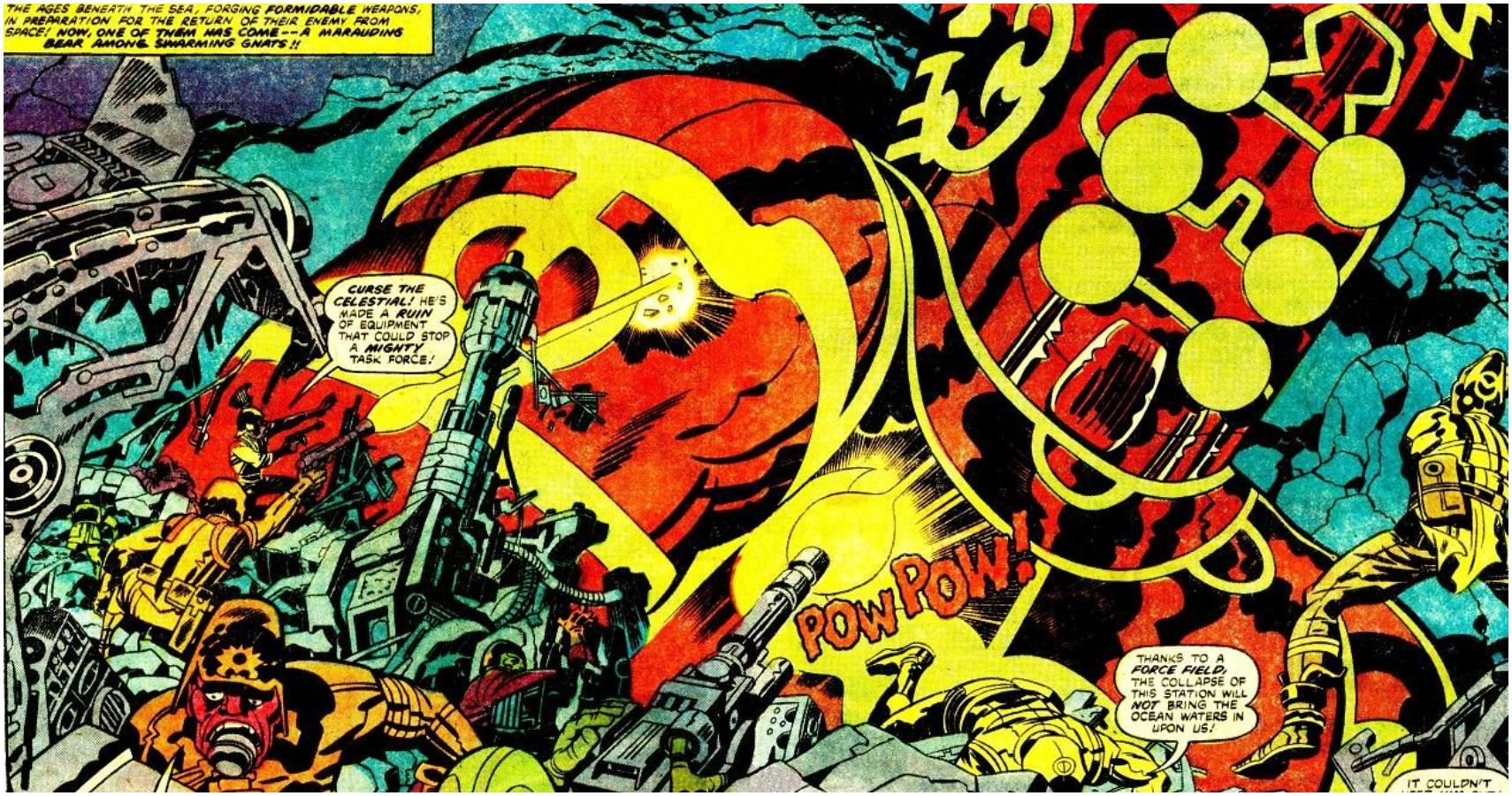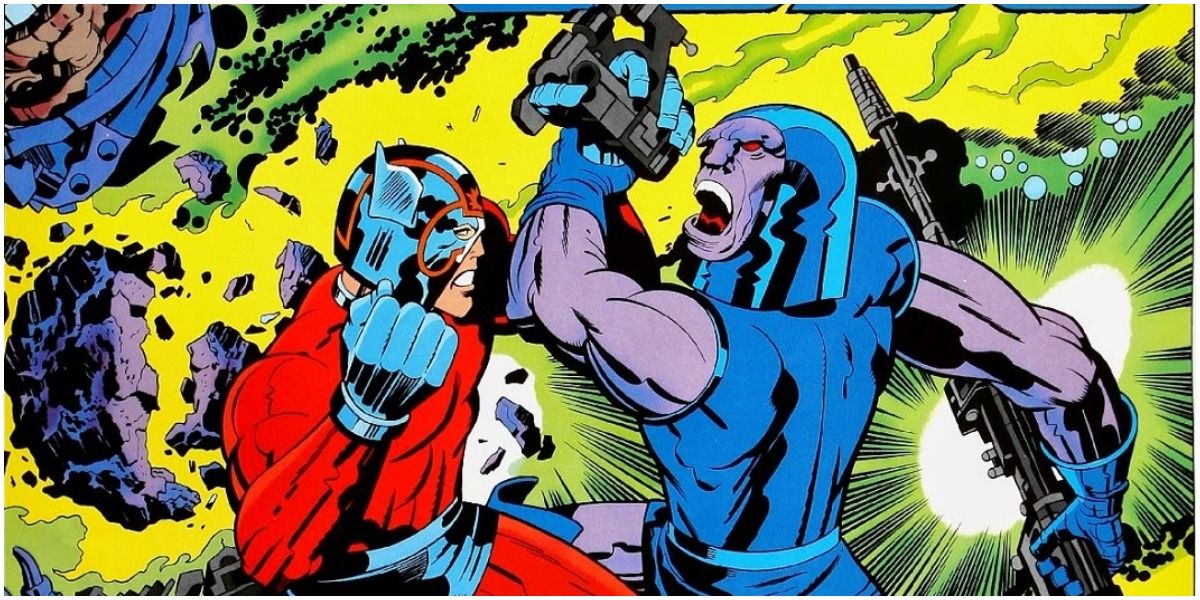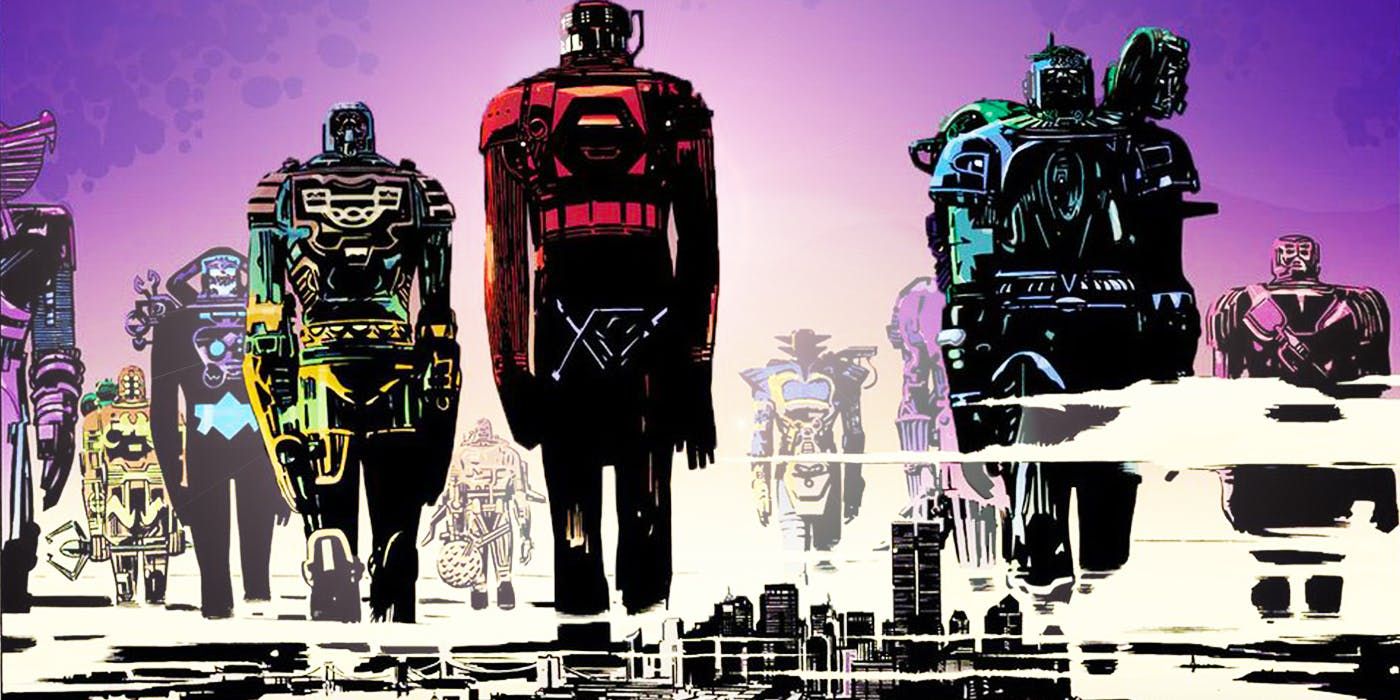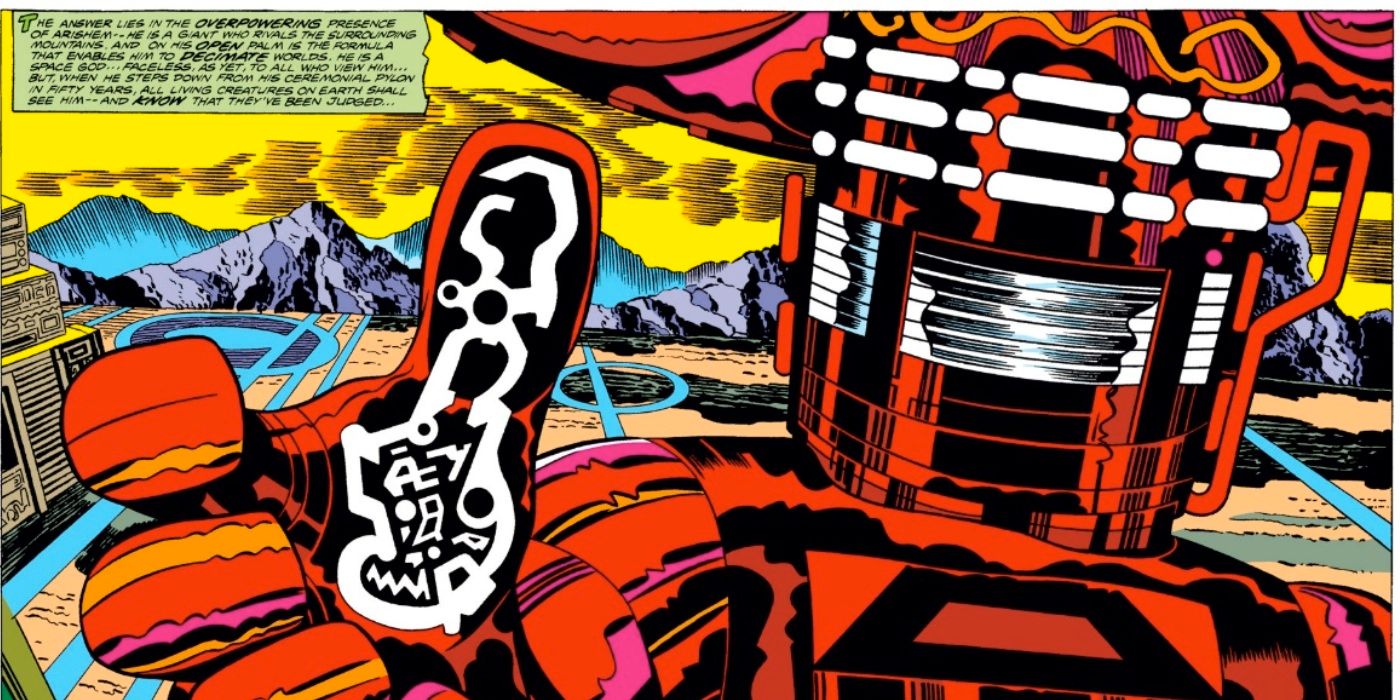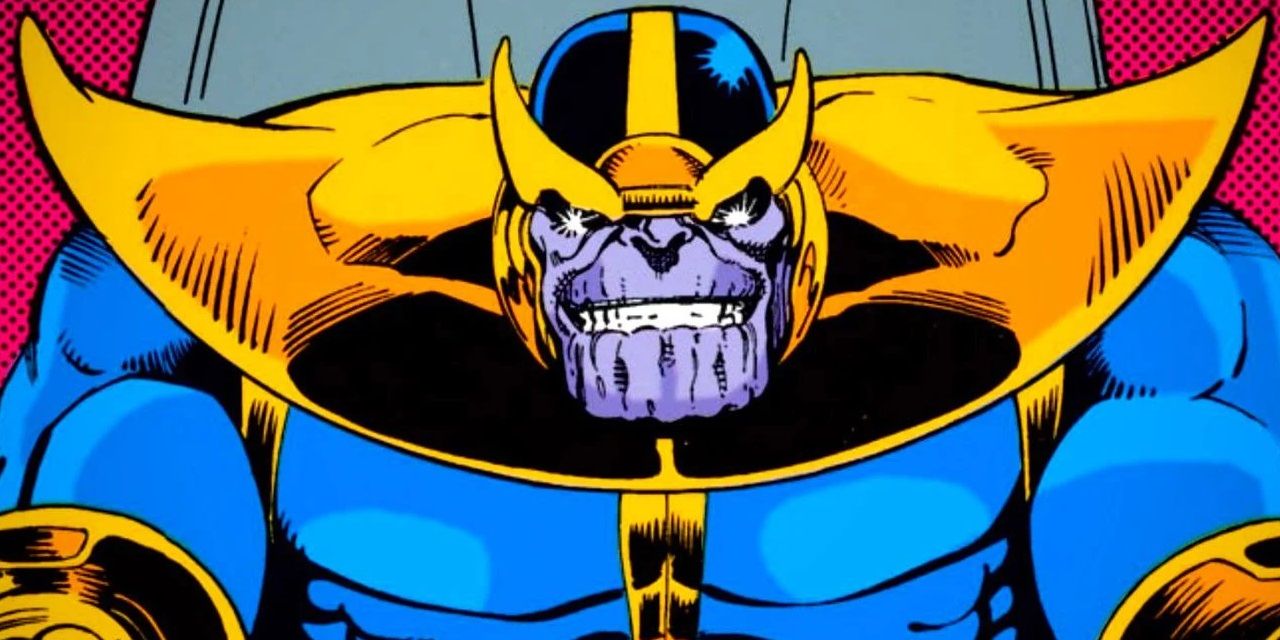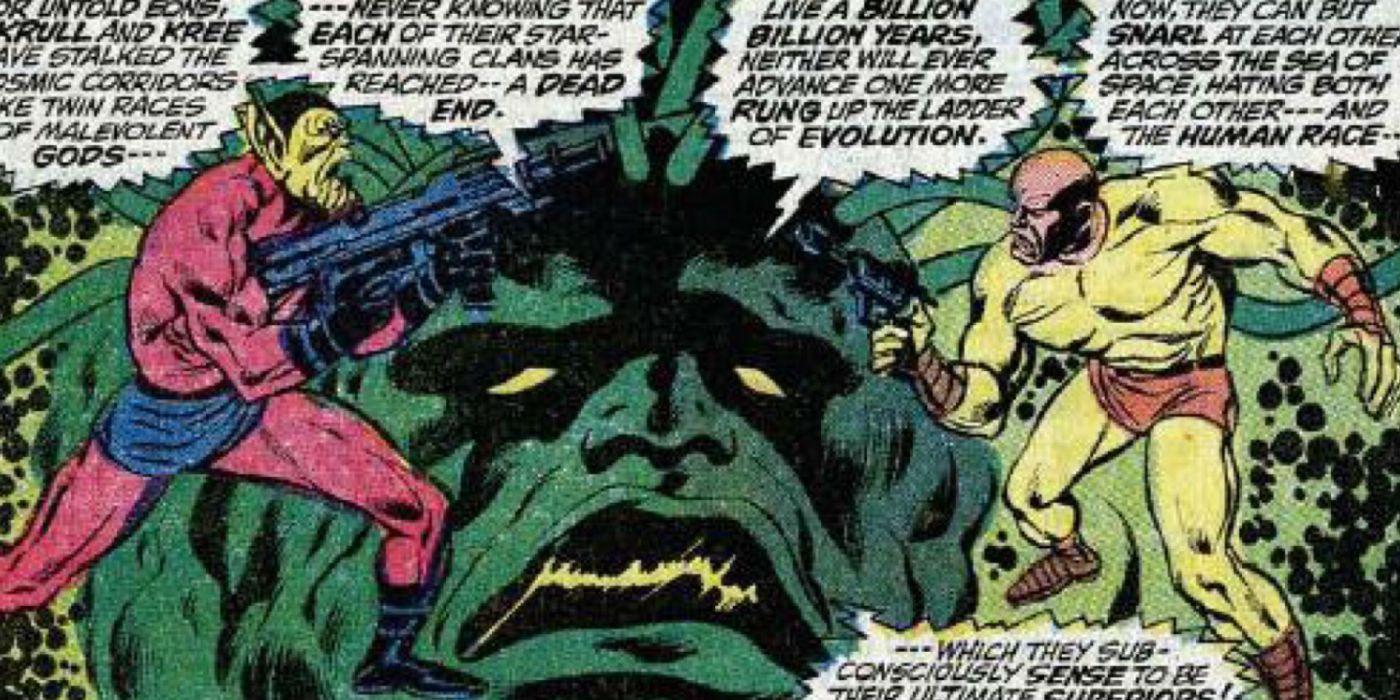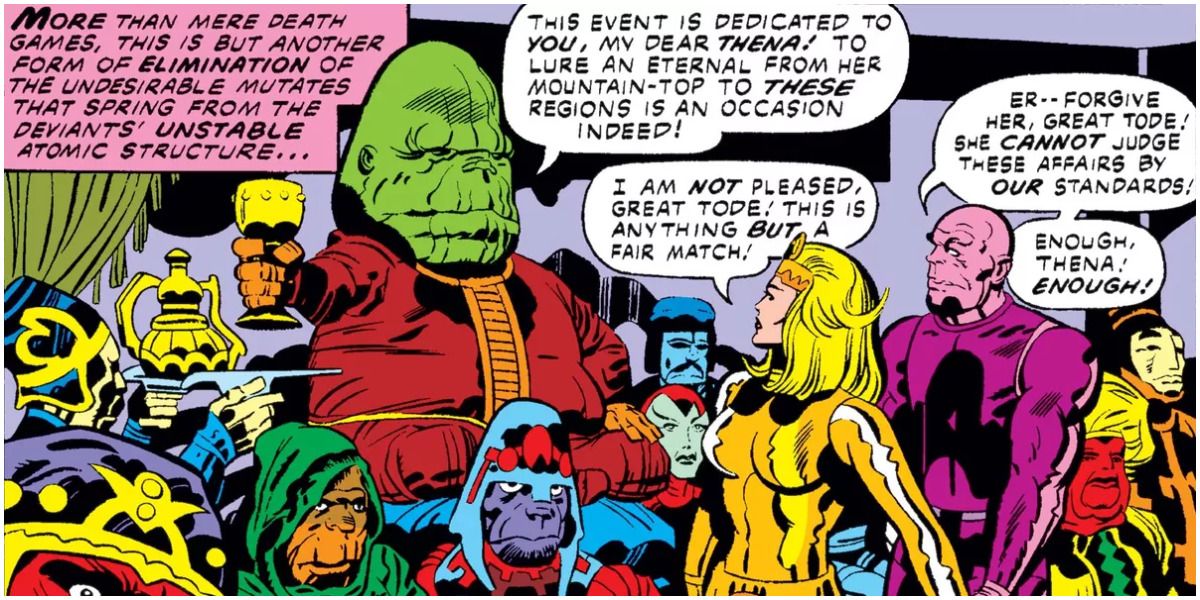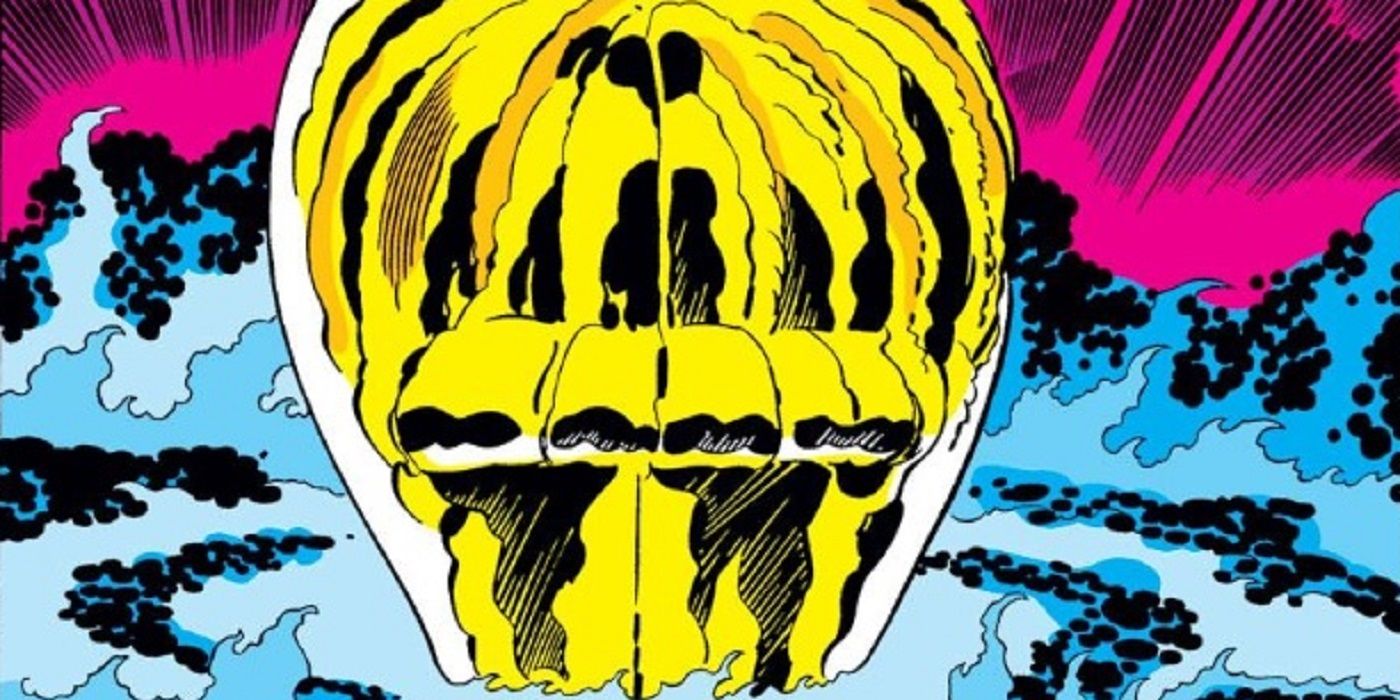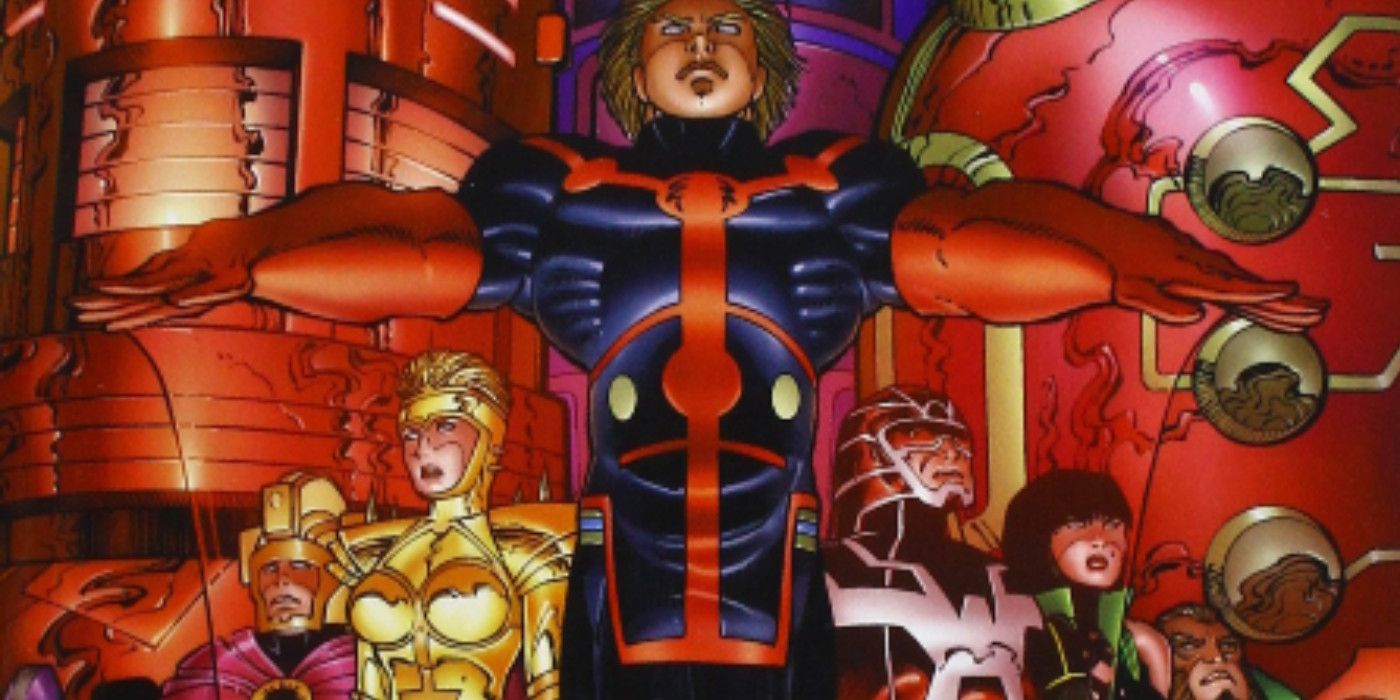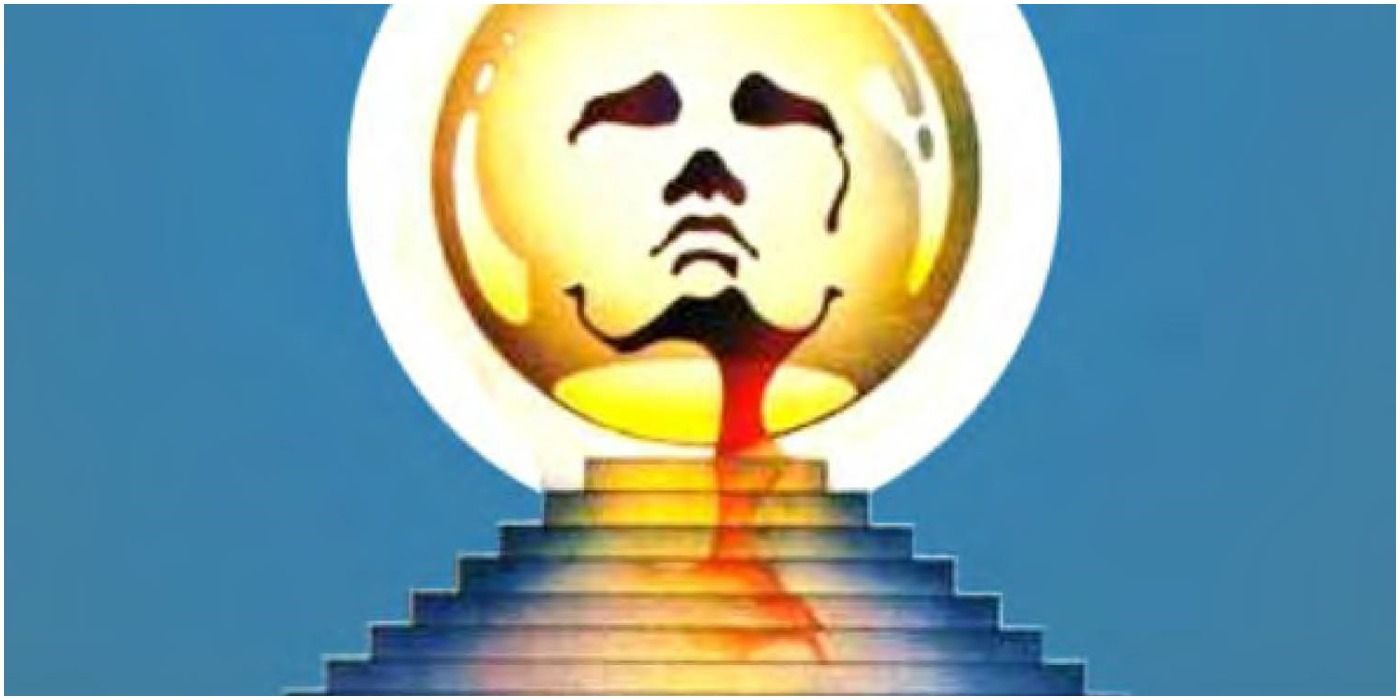Jack Kirby liked his cosmic gods. Whether it was Galactus, the New Gods at DC, or The Eternals at Marvel Comics, the concept of all-powerful alien overlords really got his brain going. Kirby kept tinkering with the idea through his career, creating gigantic rosters of exciting, complex characters with an entire associated mythology. The Eternals are coming back to comic books, so now is a great time to take a closer look at these characters.
The Eternals don't have the most successful history in the comics, but that seems likely to change with their upcoming live-action debut next year. Here are ten things you need to know about the Eternals.
10 New Gods Connection
The Eternals are in many ways a continuation of themes Jack Kirby played with for his entire career. They certainly carry forward some of the ideas he had been working on at DC Comics with the New Gods.
Even these stemmed from ideas he developed for Thor but largely kept to himself. Kirby developed the Fourth World mythos around his fascination for gods and aliens, creating an entire universe onto itself. Unfortunately, the books didn't sell well and were canceled. When Kirby went back to Marvel, he continued some of those ideas with the Eternals.
9 Celestial Origins
The mythology of the Eternals is as expansive as that of the New Gods, but Kirby tied it into existing Marvel continuity. Another amazing cosmic force he helped create, the Celestials, became the impetus for the Eternals. Kirby developed, again, an entire mythology that explained not just the origin of the Eternals but the entire Marvel Universe.
In a nutshell, the supremely powerful cosmic beings visited Earth a million years ago and experimented on early humans, creating the immortal Eternals and the less successful Deviants. These experiments also provided the basis for later superhuman mutations in humanity.
8 Eternals: The Next Generation
How mankind gets from Eternals and Deviants to someone like Spider-Man is a long and complicated process. The mythos Kirby developed is almost as vast and complex as the legendarium of J.R.R. Tolkien. Like Middle-Earth, it has to do with the fall of an early civilization.
The Eternals once lived in the city of Titanos. This First Generation was forced to leave after experiments by the Eternal Kronos destroyed it. The Second Generation followed, which included an Eternal named A'lars, who might be familiar to fans of Avengers: Endgame.
7 Thanos Is A Descendent
Thanos is the son of A'lars, as the Red Skull briefly mentioned in Avengers: Endgame. That makes Thanos a Third Generation Eternal and explains his significant native power. The basic powerset of Eternals varies, but thanks to their genetic legacy from the Celestials and the unlocked potential they gained from the otherwise disastrous experiments of Kronos, they all have enhanced strength, stamina, and speed (some have much more power.)
Thanos' introduction in the MCU clearly paved the way for the broader concept of the Eternals in the films, who will debut in their own movie early next year (after being delayed from this fall).
6 Children of the Gods
Thanos is a product of a marriage between the Eternal A'lars and a woman from Titan, Sui-San. The Titan descendants of the Eternals like Thanos are not as powerful as their god-like ancestors, but still pretty powerful. The Eternals share genetic links with many races in the Marvel Universe.
The Kree and Skrulls both resulted from similar experiments by the Celestials. After the loss of Titanos, the Eternals also founded the city of Olympia on Earth, leading to humans confusing them for Greek gods and leading to that mythology.
5 The Changing People
The Celestials elevated early humans to god-like status with the Eternals, but not all of their experiments worked out. Some humans transformed in the Deviants, grotesque creatures that were meant to occupy the dark half of this alien angel-demon concept.
The Deviants, known among themselves as the 'changing people' all suffered genetic mutations that the Celestials then made sure never to repeat. But the Deviants are not mere monsters. They possess great power, intellect, and technology, and have used it to wage war on the Eternals ever since.
4 The Uni-Mind
One of the key concepts Jack Kirby introduced in the Eternals mythos was that of the Uni-Mind. When the Eternals all combined their mental and physical power, they formed the Uni-Mind, which is basically a giant cosmic brain. The Uni-Mind also projects energy blasts, because of course.
The Uni-Mind seems to have some root in a sci-fi idea introduced by Arthur C. Clarke in his classic novel Childhood's End. In that book, a race of alien Overlords whos secretly controls the Earth also controls something called the Overmind.
3 Neil Gaiman Reprise
Sadly, the Eternals didn't exactly make as a big a splash as Kirby hoped to. Like the New Gods, the characters and books quickly fell off the slate. With a few exceptions here and there, particularly in Avengers, that was the case for years, until Neil Gaiman came along. Gaiman reintroduced and modernized the characters in the early 2000s.
Gaiman has the Eternals appear on Earth in the modern day with no memory of their ability or past, which allowed him to retcon some elements like their very OP powerset.
2
The Eternal 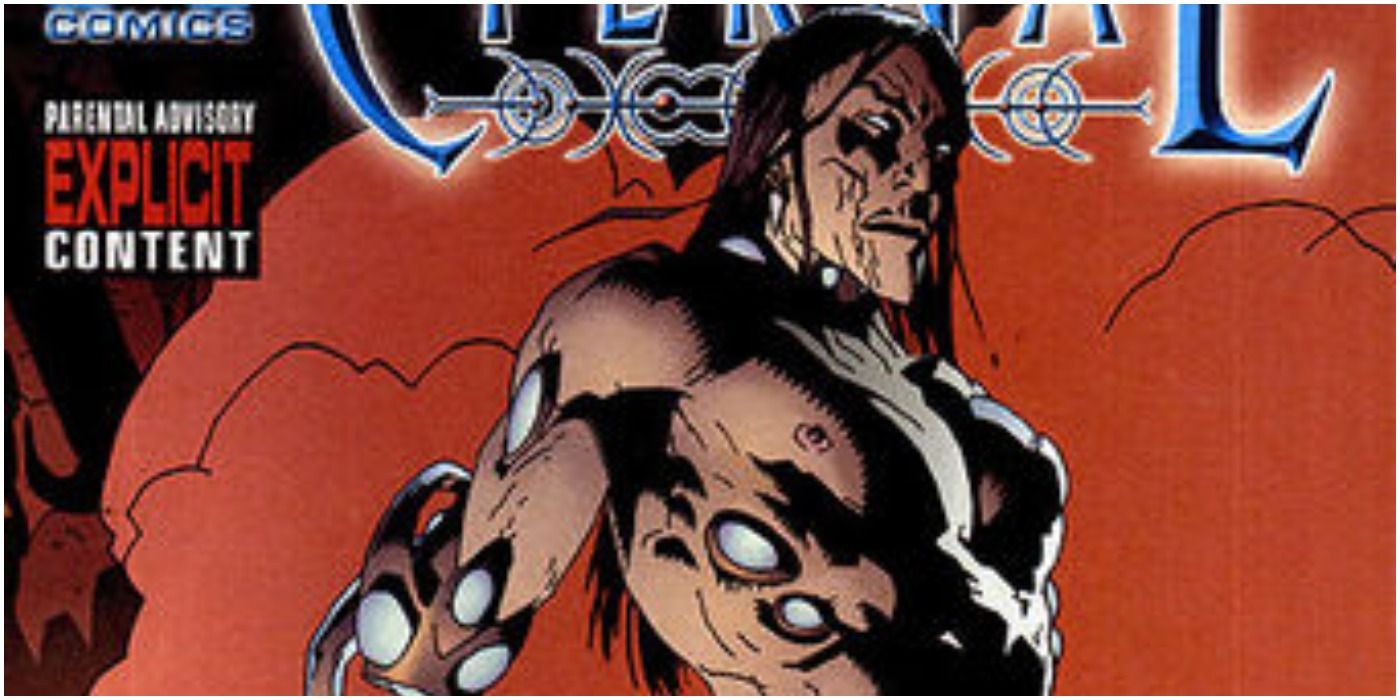
Another attempted reboot of the classic series came in the form of The Eternal, a Marvel Max series from writer Chuck Austen in the early 2000s. This iteration was far less successful, canceled after only six issues, and far less well-received than the Neil Gaiman version.
Austen abandoned virtually the entire mythos of the Eternals, keeping only the names. He substituted a story with no real connection to the Kirby one and focused on the mature sexual themes that Marvel Max tried to emphasize at the tine.
1 Possible Connection to Chariots of the Gods
Jack Kirby clearly had an affection for complex systems of alien gods who meddled in the history and development of humanity. That interest appears to have come at least in part from the book Chariots of the Gods, a 1968 bestseller from author Erich von Däniken that imagined the great feats of early human history such as the pyramids as the work of alien gods.
This book inspired an entire cottage industry of speculation on aliens and their role in earthly affairs, culminating in one of the most successful memes of all time.

